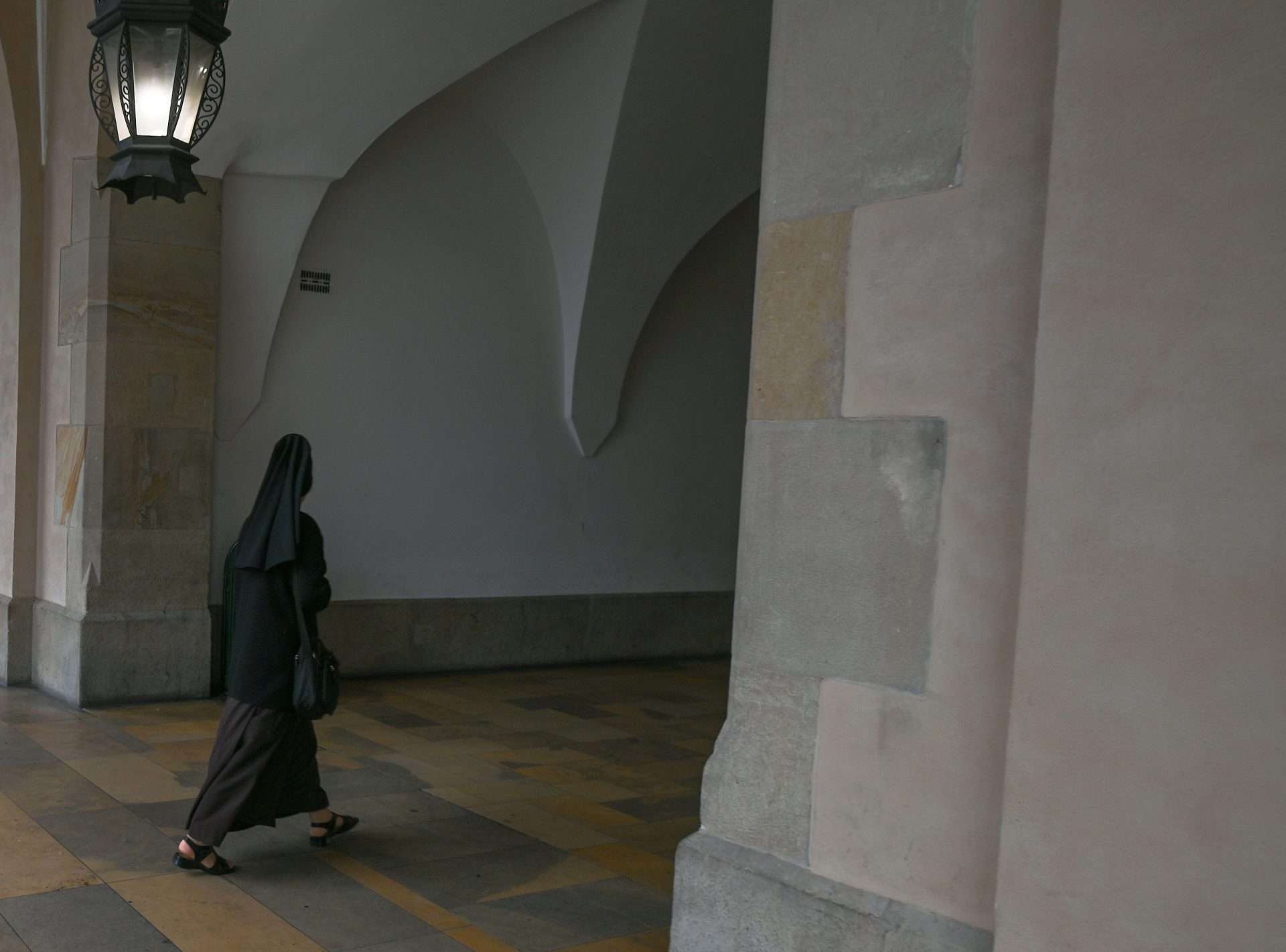LONDON (UNITED KINGDOM)
The Tablet [Market Harborough, England]
June 10, 2025
By Penelope Middelboe
 If nothing changes, most nuns thinking of disclosing will take heed of the punitive consequences of disclosure already in the public domain and will decide that silence is by far the safer option.
If nothing changes, most nuns thinking of disclosing will take heed of the punitive consequences of disclosure already in the public domain and will decide that silence is by far the safer option.
If Pope Leo wishes to take up this issue of the clerical sexual abuse of female religious, as his early meeting with the head of the Dicastery for Consecrated Life would suggest he does, he will need to insist on a system of safe disclosure for religious sisters
“For victims, reporting rape is effectively a lottery, and the odds are rarely in your favour,” said Dame Vera Baird as Victims’ Commissioner for England and Wales. Only 5 per cent of the 67,125 rapes that were given an outcome by the police in the year ending December 2021 resulted in a charge.
For nuns or religious sisters reporting clerical sexual abuse the numbers of convictions globally are infinitesimally small. Disclosing rape when forensic evidence is no longer available makes the situation worse. And yet in 2019 Pope Francis admitted that the church had an issue with the clerical sexual abuse of nuns. It happened largely in “certain congregations, predominantly new ones”, he said, and the roots lay in society “seeing women as second class”. Also responsible is clericalism, the distortion of the vow of obedience and the absence of a safe way to disclose abuse.
I personally know a former Mother Superior, let’s call her Sr Gretchen, who disclosed clerical sexual abuse back in 2016 and nine years later is still suffering the full force of the Church’s anger against her. For legal reasons I can’t disclose any of the details of the case. Her resilience is remarkable, as is her determination to continue her stand for justice, which she says, is “not only for herself but for all those who remain silent”.
Sr Gretchen, a religious sister with a small, comparatively new congregation like the ones Francis mentioned, and founded by a bishop, suffered multiple clerical sexual abuse over two years. It took place in the convent where she was the Superior, and the abuser was a leading cleric. For two years she didn’t know what to do. When she went to priests for help, she was told to pray for her abuser.
When my friend disclosed via the accepted Church channels she was immediately removed from her position as Superior of the convent, and director of the convent’s outreach programme which she had overseen since it began. This was a punitive move to sever relations between her and the local community. She and the religious sisters who supported her were not only shunned by their parish and their order but also by the diocese. No priest was sent to say Mass, they were given no medical assistance, no money for food and bills, and no pocket money. The offers of bribes to family members and the level of threats and intimidation by parishioners and others became so serious that the Sr Gretchen finally went to the police and has received police protection ever since.
The abuser was acquitted in 2022 in the lower criminal court, for lack of evidence. Typical of the cases Dame Vera Baird is referring to. But no canonical investigation or trial has been carried out and he continues without any canonical restrictions on his ministry. By contrast, the Sr Gretchen continues to live in penury and isolation in her convent, forbidden to undertake any worthwhile work for the Kingdom of God, living on some tailoring work and the generosity of feminist support groups.
For the last two years the response of the order, and of the diocese that founded and controls it, has been that the Sr Gretchen and her companions must seek exclaustration. But they believe in their call to remain religious sisters.
If Pope Leo wishes to take up this issue of the clerical sexual abuse of female religious, as his early meeting with the head of the Dicastery for Consecrated Life would suggest he does, he will need to insist on a system of safe disclosure for religious sisters. Pope Francis in Article 4 of Vos Estis Lux Mundi demands protection for the person disclosing. To do so the Church needs to respond to the fact that convictions in the secular courts are going to be rare on account of the lack of witness evidence. Structured support must be given to the victim, regardless of a conviction of the abuser, that allows her to continue her vocation with dignity and in safety, without having to see the abuser. This problem urgently needs imaginative and sensitive solutions. If the issue is lack of evidence, then adopt the standard safeguarding protocols of hospitals, prisons and schools and ensure no religious sister is ever left alone out of sight with a cleric and educate religious sisters about ways to keep themselves and each other safe.
If nothing changes, most nuns thinking of disclosing will take heed of the punitive consequences of disclosure already in the public domain and will decide that silence is by far the safer option. As Sister Linah Siabana just told the Conference of Major Superiors of Africa and Madagascar, “At times, we just get to know about [the abuse] when a sister is pregnant.”
